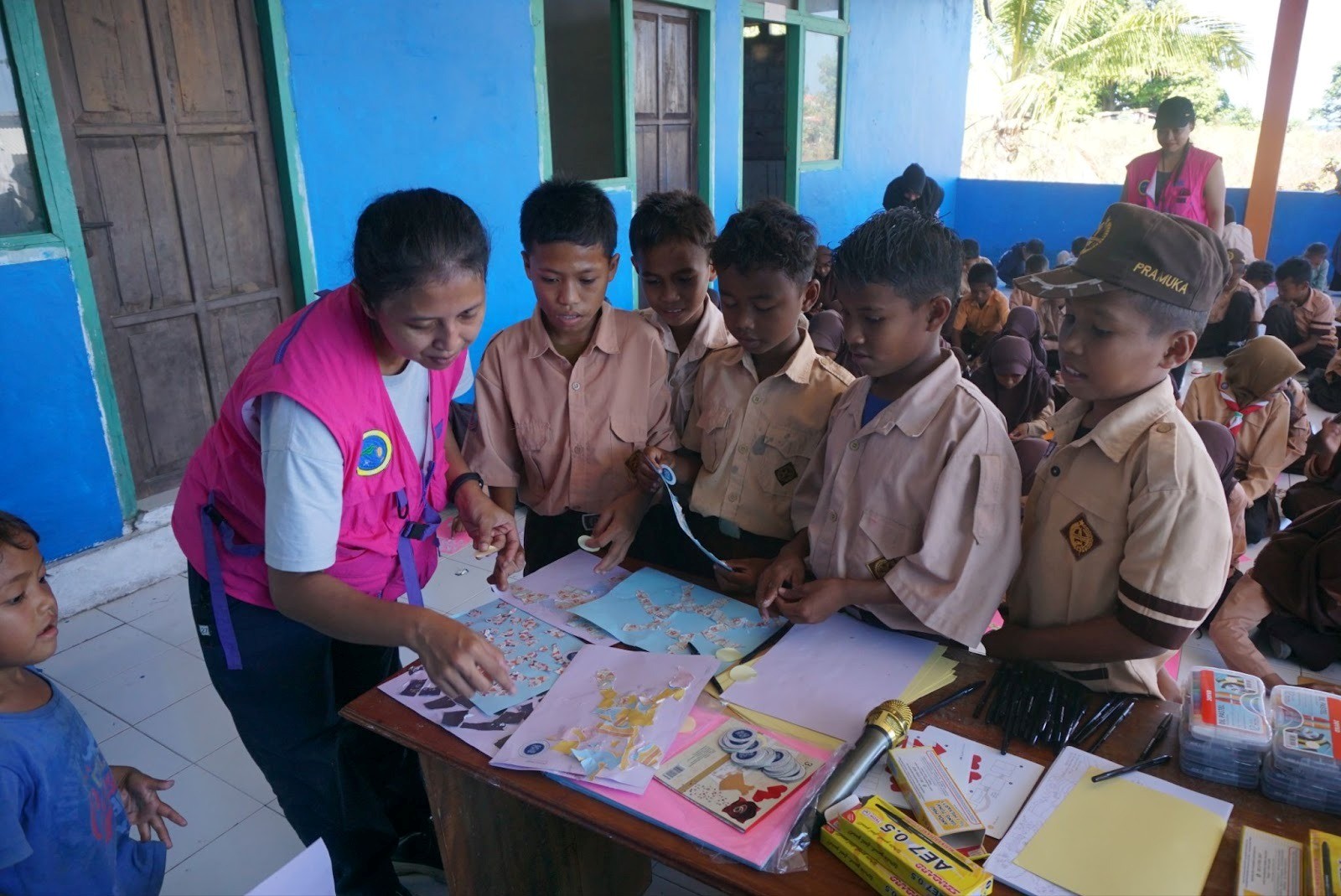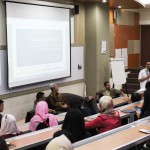The Researcher of Indonesia’s Rivers, ITB’s Young Professor Dr. Arni Sholihah
By Adi Permana
Editor Adi Permana

BANDUNG, itb.ac.id – In celebration of last Friday’s (22/4/2022) Earth Day, reporters of ITB’s Bureau of Communication and Public Relations acquired the opportunity to interview Dr. Arni Rahmawati Fahmi Sholihah, a grantee of the Young Professor’s Capacity Growth Research Fund. Her proposed research title was “The Exploration of Freshwater Fish Diversity in the Upstream Flow Area of Citanduy River, West Java.”
Arni is a part of SITH ITB’s Young Professors as well as an alumna of its Undergraduate Program in Biology. As a biology student in ITB, she held the position of Association Senator and became the Biology Students’ Association representative in the KM ITB Congress.
Arni’s research focus covered the biogeography of Sundaland. During her doctoral research, she investigated the rivers consolidating Sundaland, such as the river of Java’s northern area, which afterward was compared with other rivers comprising the region. Her research now concentrates on rivers without recorded data, especially those around the south of Java. Later, these northern and southern data will be combined.

Citanduy River became her current research location. The presence of the management office thankfully eases much of the bureaucratic procession. Moreover, Citanduy River being situated in the southern area is comparably cleaner than the main Citarum River.
According to Arni, the pollution of Citanduy River concerns agricultural activity-prompted eutrophication with the upstream area becoming a site of pollution through its mountainous nature. The upstream also features evolutionary differences in species from the downstream due to geographic isolation, although information-gathering about evolution in the downstream is rather difficult. She wished to research the Cimanuk River after finishing the Citanduy River data collection.
Contrary to her funded research title, Arni’s interest gravitates not towards the freshwater fishes, but rather the history of a region. Freshwater fish served as a model animal to facilitate research, based on the benchmark research of Arni’s doctoral research in the northern area of Java. Initially, the established analysis specimen was macrozoobenthos, yet there was a plethora of alien or nonlocal macrozoobenthos (invasive species). In addition, the upstream areas of West Java have been dominated by agricultural lands, thus obtaining fishes, or even macrozoobenthos became exceedingly difficult. “Hopefully, this research will also yield macrozoobenthos data following the fish data,” she explained.
Arni’s research inspiration consociates a lot with ecology. Her role model was Prof. Dr. Djoko Tjahjono Iskandar, a professor of the same faculty with the highest exploration number.
At the moment, the research process is still in the stage of point survey. Determining the point survey is challenging as the focus was not on distance, but rather on significant changes occurring such as the land type. Every different land type is observed visually from its sediments and streams. This is because biogeography studies existing evolution, therefore there is no definite point and distance to inquire about the species’ habitat nor the species’ model. Data collection will be conducted in June 2022, after the final exam.
To commemorate Earth Day, we also asked Arni her opinions regarding pollution and its impact on freshwater fish diversity. Thus, her subsequent response:
“Heartbreaking. If we compare Java and Borneo, there’s a clear difference. Rivers in Java are very waste-polluted, and some species there are even extinct, such as the belido fish (Chitala lopis), though we can still find them on other islands. We obtain the fish’s location by asking the locals. There does exist information on freshwater fish in Indonesia, especially Java, but the data are hundred years old, and only recently did I add them onto my research group.”
“Then we look at foreign countries; they have obtained basic sciences and data from centuries ago, which are easier to apply. However, in Indonesia these kinds of data are insufficient, thus the focus of development in research is to produce applicable data. This too, crossroads with biogeography which evaluates history through applications that generate a slow return.”
“The Earth is home to many species; therefore, it is also the right of many to live there. Maybe being a new species makes human beings egocentric and self-serving on their own, raising a perception that the Earth is all about humans. If this egocentrism persists, the Earth will come to ruin and it’s also hard for us to enjoy living. For me personally, it’s now harder to obtain fish specimens with all these pollutants in the river.”
Reporter: Alvina Putri Nabilah (Biology, 2019)
Translator: Firzana Aisya (School of Life Sciences and Technology, 2020)

.jpg)
.jpg)


.jpg)



